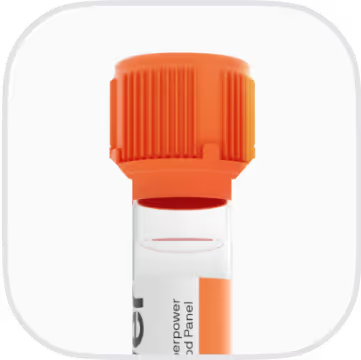What are CFS/ME biomarkers
CFS/ME biomarkers are measurable signals in blood and other tissues that capture how the illness disrupts core body systems. Instead of a single yes/no test, they map the biology behind symptoms—showing shifts in energy production, immune signaling, and automatic body regulation. In blood, these patterns can include altered immune messenger profiles (cytokines), changes in stress‑response rhythms (HPA axis), and metabolic fingerprints of cellular energy strain (mitochondrial oxidative metabolism). They can also reflect autonomic imbalance that drives lightheadedness, temperature swings, and unrefreshing sleep (dysautonomia). By translating invisible processes into objective numbers, biomarkers help validate symptoms like post‑exertional crash (post‑exertional malaise), guide exclusion of look‑alike conditions, and support research to define subtypes and targets for therapy. No single marker currently diagnoses ME/CFS on its own; the value lies in panels that track a consistent biological story over time. Used thoughtfully, biomarker testing turns lived experience into a biological map clinicians and researchers can act on.
Why is blood testing for CFS/ME important?
- Check stress hormones, inflammation, vitamin D status, and protein nutrition in CFS/ME.
- Spot morning cortisol imbalance that may explain stress intolerance and post-exertional crashes.
- Flag silent inflammation with hs-CRP, guiding pace of activity and recovery strategies.
- Differentiate ME/CFS symptoms from infection or other inflammatory conditions using hs-CRP trends.
- Optimize bone, muscle, and immunity with vitamin D sufficiency; support mood and energy.
- Protect fertility and pregnancy by correcting vitamin D deficiency before and during pregnancy.
- Track nutrition and inflammation with albumin to guide protein intake and hydration.
- Best interpreted with thyroid, iron, B12, glucose, and your symptoms.
What insights will I get?
Blood testing for Chronic Fatigue Syndrome/Myalgic Encephalomyelitis (CFS/ME) provides a window into how the body’s core systems are functioning under stress. CFS/ME affects energy production, immune balance, inflammation, and the body’s ability to recover from daily demands. At Superpower, we focus on four key biomarkers—Cortisol, high-sensitivity C-reactive protein (hs-CRP), Vitamin D, and Albumin—to help map out these interconnected systems.
Cortisol is the main stress hormone, reflecting how the body manages physical and emotional challenges. In CFS/ME, cortisol patterns can be disrupted, signaling altered stress response and energy regulation. hs-CRP is a sensitive marker of inflammation; even low-level increases can indicate ongoing immune activation, which is often seen in CFS/ME. Vitamin D is essential for immune modulation, muscle function, and overall vitality. Low levels are common in people with chronic fatigue and may reflect reduced sun exposure or altered metabolism. Albumin, a major blood protein, helps maintain fluid balance and transports hormones and nutrients. Lower albumin can signal chronic inflammation or poor nutritional status, both relevant in CFS/ME.
Together, these biomarkers help assess the stability and resilience of the body’s stress response, inflammation control, and nutrient reserves. Balanced levels suggest the body is maintaining homeostasis, while persistent abnormalities may point to ongoing physiological strain in CFS/ME.
Interpretation of these results depends on factors like age, sex, pregnancy, acute illness, medications, and laboratory methods. These variables can shift biomarker levels, so results are always considered in the context of the individual’s overall health and circumstances.







.avif)



.svg)





.svg)


.svg)


.svg)

.avif)
.svg)










.avif)
.avif)
.avif)


.avif)
.avif)




.svg)




.avif)


